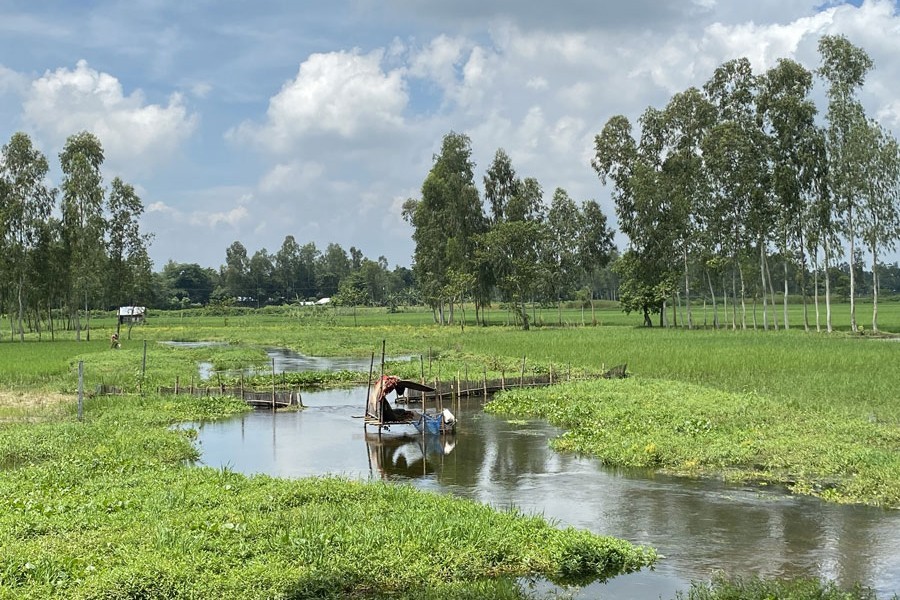Integrated and diversified farming is necessary for meeting the food demand in Kurigram, a food-deficit district in the country's northern region where many people still suffer from poverty and hunger.
The people of the district, especially in Ulipur upazila, remain at the bottom in terms of per-capita land while most of them live below the poverty line and suffer from malnutrition.
According to official data, the poverty rate in Kurigram district is 70 per cent and the extreme poverty rate stands at 57 per cent.
Rohini Kanta Barman, 65, a farmer who lives in Durgapur union of Ulipur upazila, told the FE that most farmers of his village work on others' farmland and paddy is the main crop here.
"We have to sow paddy seeds as many as three times a year due to floodwater that raises the farming cost and deprives us from cultivating other crops. Regular floods in low-lying areas near the rivers cause damage to crops, resulting in financial and labour losses," he added.
Another farmer, Protap Chandra, 57, echoed the same, adding that they do not get fair prices of their crops due to poor road communications. The food demand could not be met from their farming.
"The situation takes a serious turn during dry season. Weather does not behave properly. We have to irrigate even during the rainy season due to late monsoon. And once the monsoon comes, everything gets submerged," he narrated in frustration.
Md Nazmul Huda, an area manager at BRAC in Ulipur, told the FE that low-lying areas in Kurigram are submerged by floodwaters for six months at a stretch. "It is difficult for the farmers to cultivate paddy, vegetables and other crops during this time."
"Prices of vegetables are comparatively high in Ulipur despite being a rural area. It contributes to malnutrition and food consumption habit of the people. They don't have sufficient knowledge about integrated farming which can help them eradicate poverty," he added.
There are some 450 chars in Kurigram which could be used for diversified cultivation and the farmers could reap benefit from it. "But we need to make concerted efforts and extend support to the farmers," he said.
Prof Mozaherul Huq, former regional director at World Health Organization (Southeast Asia), told the FE that the region's economic status shows the root causes behind such scenario.
"The people of Kurigram district have to bear the brunt of floods for six months of a year, throwing them out of work. Floods submerge croplands and deprive them of diversified crop cultivation."
The situation normally affects the nutrition status of people, he added.
"No economic engagement other than integrated and diversified crop cultivation can get them out of the situation in the changing climate condition," said the expert, who also worked in Ulipur upazila under WHO.
"The district has so many resources but investors are unlikely to come up with any big project and investment in Kurigram due to lack of smooth communications with the capital and the other parts of the country," he added.
Md Monzural Haque, Deputy Director at Department of Agricultural Extension in Kurigram district, told the FE that the district is one of the work poverty-driven areas while per-capita land or arable land is also the lowest.
The farmers in the district have to cultivate a major crop like paddy in a season which ultimately deprives them of consuming other nutritious foods, he observed.
When floodwaters recede, next six months are suitable enough for cultivation. During this period of a season, the farmers can recoup their losses by cultivating various crops, including corn, potato and sweet potato, the official added.
"Lack of smooth communications is another major concern in char areas. There could have a temporary system so that farmers can complete the harvesting process and then take steps to sell their produce in the local market," he said.


